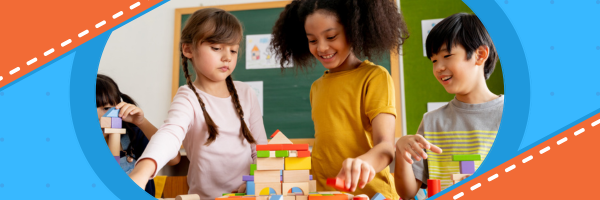
By Nahoma Presberg, MS BCBA NYS-LBA
You’ve probably heard that ABA is a tool to teach social skills. You’ve probably also heard that one of the characteristics of autism is difficulty with social interactions. But what does that mean exactly? Does that mean that conversations with friends are hard? Knowing if someone is flirting with you? Taking turns at a board game? Interviewing for a job? The answer is, it could mean all of those things and a whole lot of other things too.
Social skills is a hugely broad category used to describe so much to do with the world around us. Young children begin to learn social skills starting with early play skills. Babies learn that making sounds from their mouth can often get an enthusiastic response from a caregiver. Preschoolers learn to share their toys with their friends. Every stage of development includes the expansion of a child’s social world.
For children with developmental disabilities, social skills may not develop in the same ways. ABA therapy can often be a useful tool to help children understand about social contingencies and engage more appropriately with the world around them. But this is a hugely complicated concept. How do we decide which social skills to teach? Assessments are hugely important tools for helping identify strengths and challenges of learners. But it’s important to pick the right assessment. For example, you wouldn’t give an assessment that focuses on pre-school play skills to someone getting ready to apply to jobs.
So how do you pick a social skills assessment? There are number of elements that you’ll want to consider. Picking a good social skills assessment is just the beginning of the process. You’ll also want to consider factors like your client’s age, current social environment, motivations and interests, and feedback from parents and caregivers about where that child might be struggling. Just because someone doesn’t have a skill listed on an assessment tool doesn’t mean that it should be the therapeutic priority because it may not be relevant for their current environment or won’t significantly enhance their quality of life. You may also want to consider using a mix-and-match approach with assessments to most accurately meet the needs of your client.
Let me tell you a little bit about some of my favorite assessment tools and what they’re used for:
Socially Savvy: The Socially Savvy is a curriculum designed to help students learn skills to prepare for kindergarten. They address the following domains: joint attention, social play, self-regulation, social/emotional, social language, classroom/group behavior, and nonverbal communication
PEAK: PEAK is a more comprehensive language and social skills curriculum. It was developed based on teaching advanced relational responding. Relational responding is what contributes to our ability to engage with abstract language and generalize information to broader contexts. PEAK was created to target skills for children as young as 18-months old all the way through teenage years. This is a great choice for a more comprehensive curriculum.
AFLS: The Assessment of Functional Living Skills may sometimes be conceptualized as a functional skills curriculum as opposed to a social skills curriculum. However, for some learners, it may be more appropriate to focus on functional elements of socializing (interacting with community helpers, navigating the community appropriately, etc). The AFLS has a number of different curriculum (daily living skills, community skills, vocational skills, etc.) which can be a great way to really get specific about what is most important for your learner.
Early Start Denver Model: This curriculum is also focused on social skills of younger learners. It covers the following domains: receptive and expressive communication, social skills, imitation, cognition, play, fine motor, gross motor, (challenging) behavior, and personal independence.
Social Skills Improvement System: This tool includes a child self-report form and a parent report form. The assessment looks at social skills and problem behaviors. This assessment is rated for children ages 8-12 years old. While this is certainly not a strict age range, it gives a sense of the level of social skills that this tool assesses for.
Social Skills Checklist: There are two checklists in this assessment. One is for younger learners and focuses on the following categories: beginning play behaviors, intermediate play behaviors, advanced play behaviors, understanding emotions, self-regulation, flexibility, problem solving, conversation skills, nonverbal conversation skills, and compliments. The checklist for older learners focuses on conversational skills, problem solving, understanding emotions, compliments and flexibility.
Remember, there is no one right way to address social skills. It’s always important to come back to the question: What is going to most benefit my client right now? If you’re able to answer that question, there’s a good chance you’re on your way to effective treatment planning!
About the Author
Nahoma Presberg, MS BCBA NYS-LBA, is a Board Certified Behavior Analyst. Nahoma obtained their master’s degree at the University of Rochester in Human Development. They have been working with clients in their homes for the past 6 years but has over a decade of experience supporting children with developmental disabilities. Nahoma is passionate about neurodiversity affirming care and thoughtful programming that helps every client thrive.
For more information about Nahoma, you can visit their website at https://www.nahomapresberg.com/.
